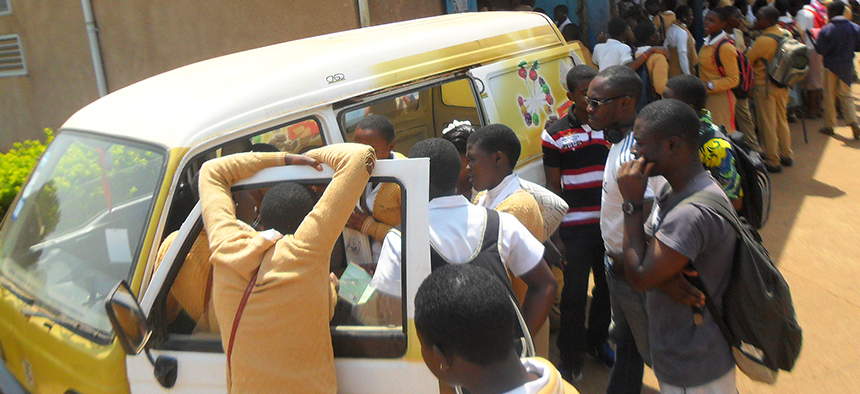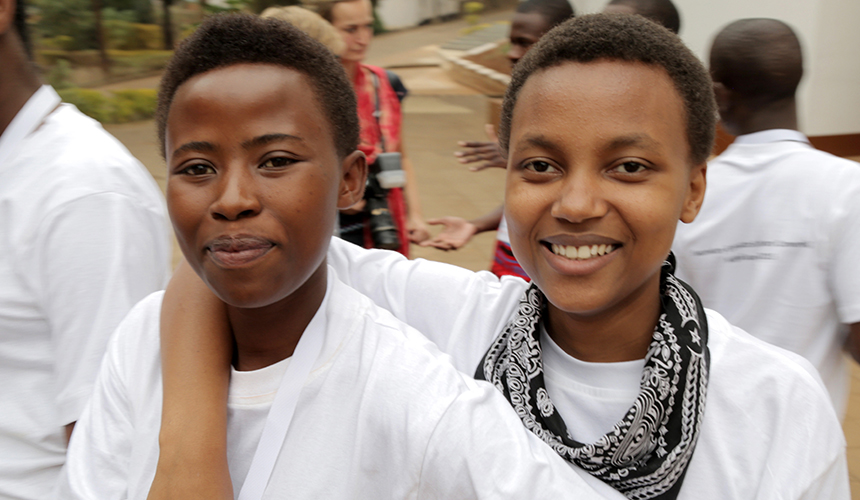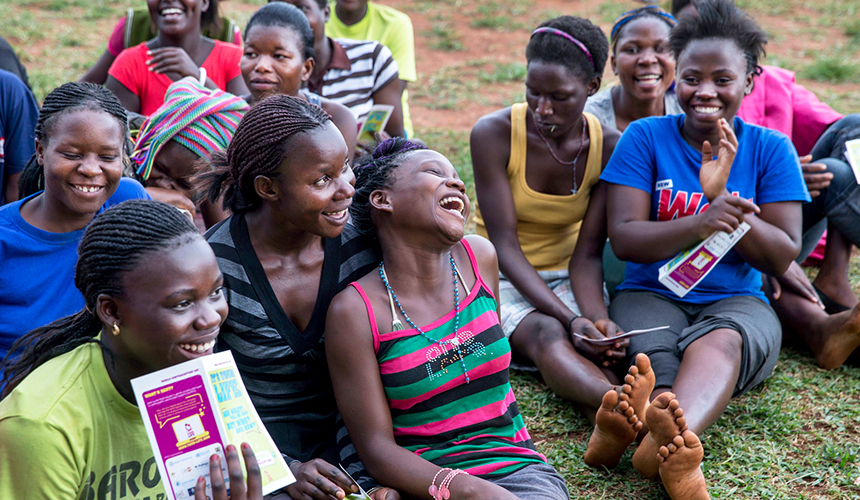Youth in Cameroon face significant social and political barriers to accessing high quality information and services needed to prevent unintended pregnancy. Discussion of sexual and reproductive health (SRH) topics is taboo in most Cameroonian homes. National law requires youth below the age of 19 to obtain parental consent to access contraceptive services in public facilities and stipulates that sex education in schools be restricted to abstinence. In Bamenda, where this project is implemented, some private facilities offer family planning services, but they are not centrally located and their service delivery approach does not address the specific needs and concerns of youth. As a result of these barriers, most youth receive information on family planning from unreliable sources, such as peers and movies, and do not seek clinic-based SRH services. This contributes to a relatively high rate of adolescent pregnancy in Cameroon—13 percent of girls ages 15 to 19 become pregnant, and fewer than 4 percent desire the pregnancy.
The Solution
CASD aims to create a youth-friendly space for girls ages 11 to 19 to access quality and age-appropriate SRH information, services, and referrals free of stigma and coercion. The girl-friendly space consists of a mobile “Girls Choice Ice Cream Shop,” which is run out of a delivery van. The van travels on a daily schedule to areas that girls frequent, such as schools, markets, and churches. As girls come to buy ice cream, trained counselors engage them in discussions on SRH topics, and distribute educational brochures on family planning with a phone hotline number that youth can call for additional SRH information. Counselors also hand out membership cards that facilitate access to a local clinic and enable client follow-up by the project team. Free male and female condoms are also available from the mobile ice cream shop.

The Strategy
- Identify SRH information needs among adolescent girls. To inform the development of relevant, accessible SRH materials, CASD collected data on girls’ knowledge and access to information about SRH topics and services. Survey questionnaires were randomly distributed to 50 girls ages 11 to 19 in Bamenda, and the resulting data were used to create educational brochures tailored to the information needs of the target population. CASD also conducted focus group discussions with youth to validate information in the brochures.
- Bring SRH information to girls in youth-friendly spaces. To enable adolescent girls to access family planning information without fear of stigma, the mobile shop operates in locations where they regularly spend time, such as schools, markets, and churches.
- Deliver accurate, age-appropriate SRH information. CASD identified counselors under the age of 25 and trained them to deliver SRH information to adolescent girls. Counselors engage ice cream shop clients in conversations about SRH and distribute brochures with family planning information. As an incentive for visiting the shop, clients receive a raffle ticket for a daily drawing to win a free cup of ice cream or other items.
- Facilitate access to family planning counseling and contraceptives. Counselors provide clients a toll-free number to access further information on family planning. Clients can also obtain free male and female condoms at the shop, and register for a membership card, with which they can access contraceptive services at a local clinic (the Providence Polyclinic). Some clients receive a 20 percent discount on the cost of other contraceptive methods at the clinic.
Thanks to the information I received at the mobile ice cream shop, I learned how to keep my dignity, interact with boys, and carefully go through adolescence.
—13-year-old ice cream shop client
Achievements
The mobile ice cream shop has reached thousands of youth. Project monitoring data indicate that the mobile ice cream shop has reached 17,412 girls and 2,185 boys to date. While CASD did not intend to target boys, some girls bring their partners to the shop, and the project team can provide information to them as well.
The project has received broad-based community support. Although some stakeholders opposed the project, CASD has received individual donations from a number of individuals in the community. These donations have helped sustain the project and demonstrate growing community support for increasing youth access to SRH information and services.
CASD is developing partnerships with schools to deliver sex education. To date, three high schools have invited CASD to partner with them to provide sex education to students. These partnerships reflect growing support for sex education and will enable the project team to reach many more adolescents with family planning information and services in the future.

Challenges
Demand for clinic-based services has been limited. Ice cream shop clients have expressed concern about being seen at the clinic and maintaining confidentiality, and have generally found the clinic less accessible than the mobile ice cream shop. CASD continues to promote the clinic as a youth-friendly source of SRH services, while recognizing that many girls who frequent the ice cream shop prefer nonclinical family planning options, such as the condoms that the shop distributes.
Making the project financially sustainable has been challenging. Since the project’s approach is to provide SRH information at no cost, many girls expect the ice cream shop to also provide ice cream for free. As a result, income generated from the sale of ice cream has been insufficient to support project costs. CASD has been able to sell enough ice cream to break even thus far, while also soliciting and receiving additional support from individual donors, but the longer-term financial sustainability of the project is uncertain.
Some stakeholders are concerned that the project promotes premarital sex. Some parents have expressed concern that their daughters are too young to learn about family planning and that the information disseminated through the ice cream shop encourages premarital sex. CASD continues to engage with parents to highlight the health and other benefits of exposing youth to accurate information on SRH topics.

Key Learnings
- Multiple approaches are needed to reach youth concerned about stigma. Ice cream shop clients who used the toll-free number often waited until late at night, when everyone was asleep, to call or send text messages seeking information on family planning. In response, CASD launched a 24-hour hotline for youth. This important adjustment to the project has enabled staff to serve many more clients outside of the ice cream shop, and better respond to needs for privacy and confidentiality.
- CASD’s innovative and relatively simple model holds promise as a replicable and scalable solution to increase youth access to SRH information and services. Several features of the project model suggest its promise—it requires little overhead, enables youth access to information on family planning and contraceptives without the stigma associated with going to a clinic, and provides convenient, age-appropriate education on SRH topics.
Next Steps
CASD is working with the Providence Polyclinic to expand the range of family planning services and methods available through the mobile ice cream shop. CASD is also exploring the possibility of incorporating an information dissemination text messaging service into the project model, to expand access to follow-up information on family planning.
Implementing Partners
Cameroon Agenda for Sustainable Development (CASD)
Location
Cameroon—Bamenda
Categories
Youth
Year Awarded
2013
Project Timeline
September 1, 2014 – October 30, 2015
About the Grantee
The Cameroon Agenda for Sustainable Development (CASD) is a youth-led nonprofit organization that works with communities and institutions in Cameroon to address the health, social, and economic issues facing the development of women, girls, and children. CASD was established in response to the lack of government support for sexual and reproductive health and rights.
Download the Case Study
Girls Choice Ice Cream Project